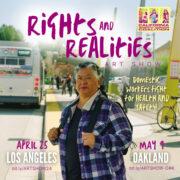Making a commitment and sticking to it takes a lot of hard work. The beginning of the year is generally the time when millions of Americans commit themselves to being healthy by losing weight, exercising more and eating fewer calories.
Losing weight is a daunting challenge. Weight loss experts say that people who have support from family and friends in their journey experience better results losing and keeping weight off than those who do it alone.
In October 2009, more than 40 of the nation’s largest retailers, non-profit organizations, food and beverage manufacturers and trade associations launched the Healthy Weight Commitment Foundation (HWCF), with the goal of supporting consumers in their weight loss efforts and reducing obesity.
Earlier this month, they announced that the nation’s leading food and beverage companies sold 6.4 trillion fewer calories in the United States in 2012 than they did in 2007. This is remarkable progress and shows what can be achieved when private companies come together and work toward a common goal.
To achieve their goal of reducing the amount of calories Americans consume, the food and beverage industries developed new lower-calorie options and smaller portion sizes for foods like cereals, snacks, canned soups and bottled beverages. And consumers responded positively. Better-for-you, lower-calorie foods and beverages drove financial performance for many of these companies between 2007 and 2011.
Healthy living and losing weight are personal choices. But some are proposing policies that threaten to limit our freedom to choose the foods and beverages that are right for our families. In cities like Berkeley and San Francisco, politicians once again are debating a tax on sweetened beverages like soda, boba teas, and sports drinks, in an attempt to influence what we eat and drink.
Whether it’s at a restaurant or in a grocery store, it’s never the government’s job to decide what you choose to eat and drink. Whether it’s a “soda tax” or portion size restrictions, government regulations won’t make people healthy—only diet, exercise and nutrition education can do that. It all comes down to a personal decision.
Discriminatory taxes and regulations that single out some foods or beverages would also hurt middle and low-income families, as they work to manage their budgets in these tough economic times. The impact to the Asian business community cannot be under-stated and Asian consumers need to be considered in this matter as well. The number of U.S. businesses owned by people of Asian origin increased 40.4 percent to 1.5 million between 2002 and 2007, increasing at more than twice the national rate, according to US Census Bureau data and that trend is continuing. Asian-owned businesses also generated $507.6 billion in receipts, a 55.4 percent increase from 2002. Asian Americans are a powerful consumer base with $718 billion in buying power that is expected to reach $1 trillion in just five years, equal to the 18th largest economy in the world. These job creators would be hurt from this tax—from the small businesses in our communities, including numerous Asian-owned businesses like corner grocery stores, to large American companies that provide millions of jobs nationwide. And in the process, consumers would lose the freedom to choose what they eat and drink, and end up paying more for their purchases.
Economic data and research confirms that this approach to addressing health concerns and obesity problems is misguided. You can’t tax people to better health. However, you can provide them with information to make the choices that are right for them.
America’s beverage companies voluntarily put calorie labels on the fronts of cans and bottles to make it easier for people to understand how many calories they’re consuming.
Healthy living is a choice—in fact it’s many choices. Don’t let bureaucrats decide what goes in your grocery cart.




